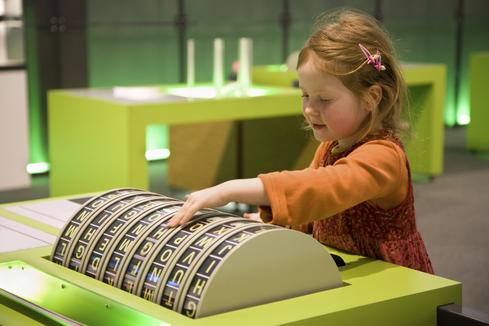Samsung Commits $1.2 Billion To IoT Research In US
Open standards, shared approaches to privacy and security, and more open wireless spectrum are needed to help the internet of things to reach its full potential of making people's lives better, according to the company.


9 Fun Tools For Teaching Kids To Code
9 Fun Tools For Teaching Kids To Code (Click image for larger view and slideshow.)
Samsung Electronics has committed to spending $1.2 billion over four years on internet of things (IoT) research and development in the US, largely through its Strategy and Innovation Center, Global Innovation Center, and Samsung Research America.
Speaking Tuesday in Washington, D.C. at Internet of Things: Transforming the Future, an event for industry leaders and policymakers, Samsung Electronics vice chairman and CEO Oh-Hyun Kwon outlined his company's vision for IoT, in which networked sensors and connected devices improve lives.
"For Samsung, IoT means bringing the physical and digital world together to improve quality of life," said Kwon in prepared remarks (PDF). "People must be at the center of everything we do if we want to realize IoT's full potential."
IoT is already affecting people at work and at home by helping them to be more efficient and by saving time, said Kwon, but it can do more to meet human needs. He cited the way a Samsung SmartThings customer has used IoT technology to help her family deal with dementia.
A video presented during the event described Jeff, a patient with Lewy Body Dementia, who sometimes leaves his property and walks into town without telling his wife. Because he always talks his keys with him, his daughter Cath installed a SmartThings hub in her parents' home and a presence sensor on her father's keychain. The sensor alerts the hub to broadcast a message that Jeff has left the premises, to keep his caregivers informed.
IoT, said Kwon, can keep people out of hospitals and nursing homes, can mitigate the impact of natural disasters by shutting down gas lines, and can promote energy savings if the technology can be deployed at scale and people accept more connected things into their lives.
Making that happen will require that policymakers understand how IoT can be a public policy tool, said Kwon, who also called for open standards, shared approaches to privacy and security, and more open wireless spectrum.
Toward that end, Kwon announced the National IoT Strategy Dialogue, a forum for industry stakeholders and federal policy experts run by the Information Technology Industry Council. The goal of the initiative, spearheaded by Samsung and Intel, is to develop a national IoT strategy.
Gartner last November said it expects to see 6.4 billion connected devices by the end of 2016, a 30% increase from 2015. The consulting firm predicts that number to reach 20.8 billion by 2020.
[See 10 IoT Startups You Need to Know.]
Samsung's $1.2 billion commitment adds to previous IoT investments. Last week, the company acquired Joyent, a cloud infrastructure provider funded to the tune of $126 million, for an undisclosed price. One of the goals of the deal is help Samsung deliver IoT services.
In April, Samsung launched ARTIK Cloud, a backend service to handle data from IoT devices. In 2014, it acquired consumer IoT device maker SmartThings.
Samsung's interest in IoT is part of a broader effort by the traditionally hardware-focused company to develop software and services.
About the Author
You May Also Like






